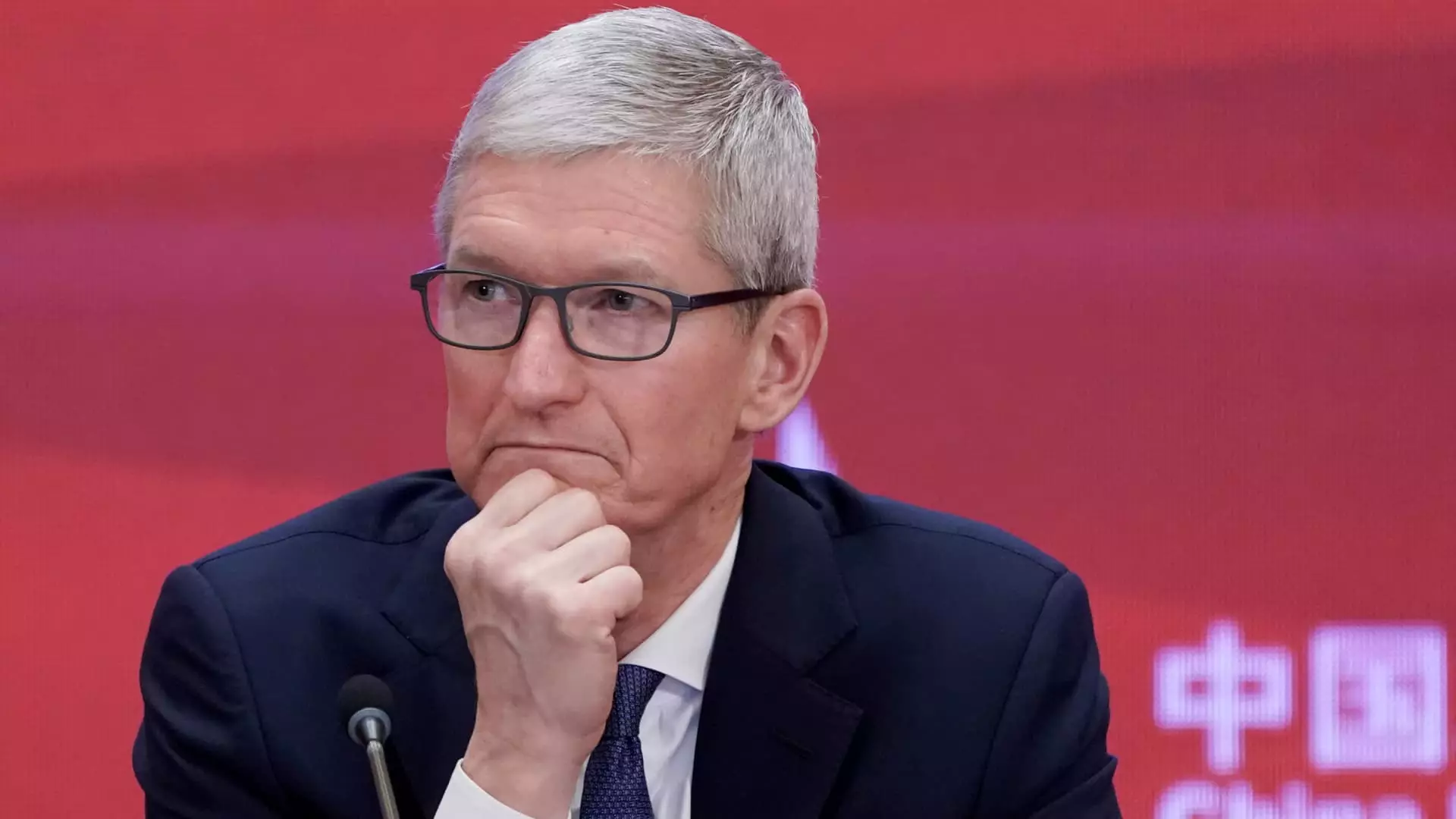Apple shares experienced a significant drop of about 3% on Thursday, following a 4% decline the previous day, amid reports suggesting that the Chinese government may ban its employees from using iPhones. This news has raised concerns about the potential international tensions between the United States and China and the implications for Apple’s products. This article explores the implications of these reported restrictions on iPhone sales and Apple’s position in the Chinese market.
According to reports, the Chinese government has ordered officials at central government agencies to refrain from bringing iPhones into their offices or using them for work. While the bans’ widespread implementation remains unclear, there are indications that the restrictions could extend to other state companies and government-backed agencies. If such bans on all government employees materialize, it could lead to a decline in iPhone unit sales in China by up to 5%, according to Bernstein analyst Toni Sacconaghi.
One of the more significant concerns arising from the reported restrictions is the potential for Chinese citizens to perceive it as a signal to use electronics made by Chinese companies instead of Apple products. This shift in consumer sentiment could have far-reaching consequences for Apple’s sales in China. Bernstein analyst Toni Sacconaghi highlights that limited iPhone usage among government employees might negatively impact sales among consumers, including related family members and the general populace. This restriction could potentially be part of a broader strategy by the Chinese government to promote domestic technology usage.
In addition to the reported government restrictions, Apple is facing increased competition from Chinese technology giant Huawei. Dan Niles, a portfolio manager at Satori Fund, recently sold his stake in Apple and is now shorting the company due to concerns about a potential government iPhone ban and increased competition from Huawei. Several Chinese retailers have started accepting pre-orders for Huawei’s latest phone, the Mate 60 Pro, which quickly gained popularity on social media platforms in China. With a Chinese-manufactured chip from Huawei’s subsidiary, HiSilicon, and potential access to 5G speeds, Huawei’s new phone poses a significant challenge to Apple’s market position in China.
Huawei’s use of a 7-nanometer chip, manufactured in China, raises questions about the effectiveness of separate restrictions on chip-manufacturing technology. The United States placed Huawei on its entity list in 2019 due to concerns over potential backdoor access to communications by the Chinese government. This move has significantly affected Huawei’s phone business, leading it to spin off some of its phone brands and causing a shortfall of $12 billion in 2020. Huawei’s latest chip’s performance and efficiency challenge the restrictions imposed on Chinese companies’ ability to develop cutting-edge processors, illustrating the complexity and limitations of such restrictions.
Despite the challenges and potential threats posed by government restrictions and competition from Huawei, Apple has experienced growth in the Chinese market. In Apple’s most recent quarter, Greater China sales increased by 8% compared to the previous year, reaching $15.76 billion. Apple CEO Tim Cook highlighted this growth and mentioned that users were switching from Android phones to iPhones, emphasizing the significance of this trend for Apple’s results and its ongoing efforts to persuade consumers to switch based on the superior experience and ecosystem it offers.
The reported restrictions on iPhone usage among Chinese government employees and the increased competition from Huawei present significant challenges for Apple in the Chinese market. The potential decline in iPhone unit sales and the promotion of domestic technology usage by the Chinese government could further impact Apple’s market share. Additionally, Huawei’s technological advancements raise questions about the effectiveness of restrictions on chip-manufacturing technology. However, despite these challenges, Apple has experienced growth in Greater China, suggesting that it is still able to attract consumers with its unique offerings. The future of Apple’s presence in the Chinese market will depend on its ability to navigate these challenges effectively and continue to innovate and meet the evolving needs of Chinese consumers.


Leave a Reply